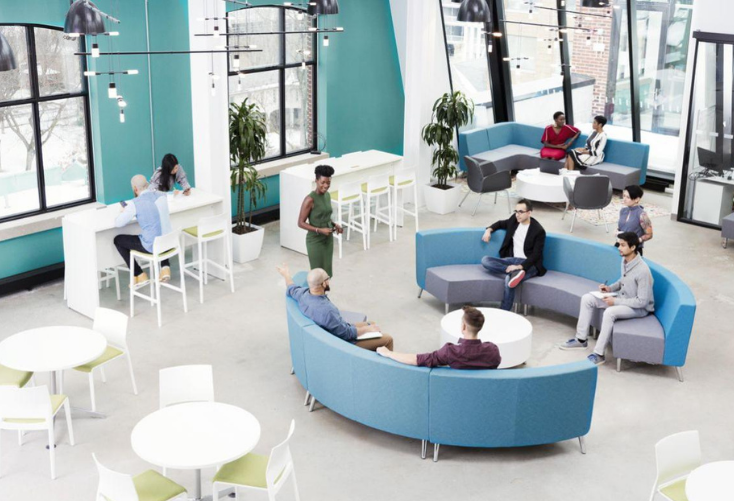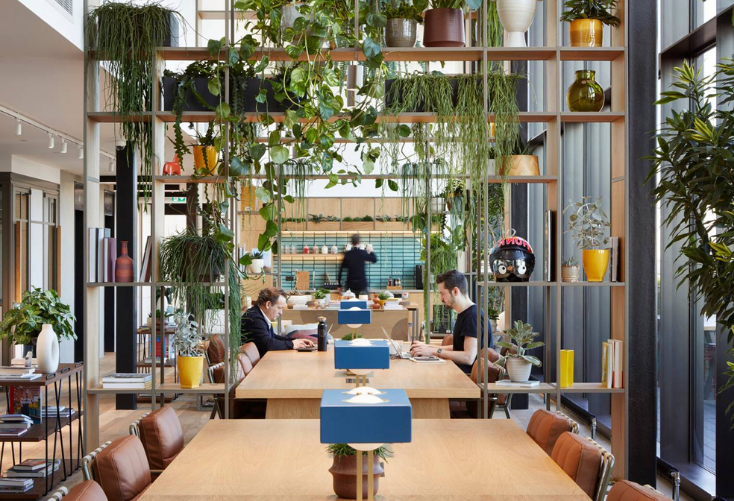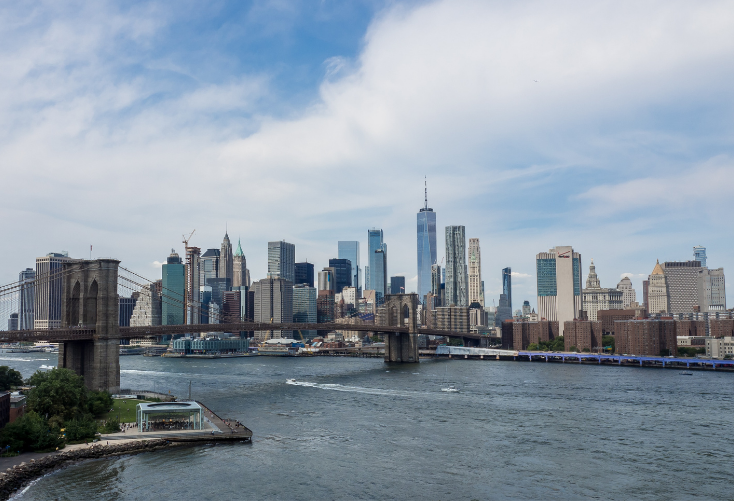Hand selected flexible workspace news from the most reliable sources to keep you ahead of the pack. We find all the latest news, so you don’t have to. Morning and afternoon updates. Stay in the know.
Here’s what you need to know today:
- Coworking And Hotels Leaning On Each Other NEW
- The Way We Work Has Been Permanently Altered NEW
- The Future Of Work In 2025 NEW
- Coworking Trends To Watch In The Near Future
- Flexible Offices Could Be A Perfect Solution
- IWG To Close 20% Of Its New York City Centers
Coworking And Hotels Leaning On Each Other
Hospitality companies are experimenting with a new strategy to generate revenue as the travel industry continues to suffer throughout the pandemic.
With millions of people continuing to work from home for the time being, hotels have started marketing their rooms as temporary offices.
For instance, coworking firm Industrious partnered with Proper Hospitality to bring this work-from-hotel concept to Proper Hotels in Austin, San Francisco and Santa Monica last month.
Guests can book a suite to use as a workspace outside of their homes on a daily, weekly or monthly basis.
“The gold-standard for partnerships in Covid are the ones that solve an immediate need for customers right now but also set up for something you think is going to be relevant for a long time to come,” said Jamie Hodari, CEO of Industrious CEO. “I do think there are going to be elements of this that will end up existing for a long time.”
Users of these rooms are given access to Wi-Fi, copies of The New York Times, the fitness center, pool, printing services and room service with daily bookings running from 8 a.m. to 6 p.m.
“Many employees are tired of working remote. It has been six months for millions of workers at this point, and that is wearing on individuals’ mental well-being and productivity,” said Aaron Jodka, a managing director of research and client services at Colliers International. “People are looking for a change of scenery, and work-from-hotel is providing that outlet.”

The Way We Work Has Been Permanently Altered
With much of the world entering the seventh month of working from home, flexible working is expected to be a permanent fixture of the workplace moving forward. So what comes next?
First, it is clear that flexible working is officially the norm. The days of traditional 9 to 5 schedules and presenteeism will not be signifiers of success in the workplace.
However, the limitations of remote working have become increasingly highlighted as time goes on. That means companies need to find a healthy balance between working from home and in the physical office that suits all work styles.
Although flexible and remote working are often used interchangeably with working from home, this is not necessarily the case. Working flexibly can also mean working in a coworking or shared workspace, which can offer employees a brand new work experience outside of the traditional or home office.
Additionally, corporates have increasingly started utilizing coworking spaces in order to de-densify their main offices, while providing a place for employees to work in suburban areas.
Without strong ties to the physical workplace, business leaders will need to make an extra effort to maintain some semblance of work culture. Studies have indicated the organizations who have a strong culture produce higher quality work, as well as retain top talent.

The Future Of Work In 2025
Now that it has become abundantly clear that the pandemic has transformed the way we work, companies are now faced with the challenge of how to maintain innovation, collaboration and retain talent moving forward.
Many companies have started prototyping new HR models in order to keep up with these changes, with some using AI and automation to gather data to have better insights into what their employees need, while improving on their search for new talent.
So what can we anticipate the future of work to look like by 2025? According to a McKinsey & Co. survey of 800 executives, some notable trends will include a bigger move towards automation, machine learning, remote and hybrid working and an increased use of freelancers.
Many of these trends have already begun to take place, with the survey finding that the use of digitization, automation and artificial intelligence have increased since the start of the pandemic.
Additionally, many major companies have already shifted the majority of their workforce to remote working arrangements and have expressed interest in continuing flexibility after the pandemic is over.
“We were lucky since pre-pandemic 40% of our workforce worked remotely so we already had technology and practices in place to handle a rapid transition to a virtual workplace,” said Fran Katsoudas, Cisco’s chief people officer. “AI and machine learning is helping us better understand how our people think and work. It’s helped us develop perks to incentivize our employees, find pools of hidden talent around the globe and develop new ways to stimulate innovation.”

Coworking Trends To Watch In The Near Future
Although remote working isn’t a new concept, the mass adoption of this arrangement has upended how society as a whole views the workplace. Now that kitchen counters have become our work desks, companies are reconsidering their reopening strategies and where remote working fits into these plans.
According to Buffer, a transition to a completely remote workforce is unlikely to happen as more employees express their need for social interaction. So what can we expect for the future of the workplace?
A study from Gartner revealed that 74% of CFOs have a plan to transition to a more remote workforce after the pandemic.
Prior to the pandemic, coworking was seen as one of the largest disruptors of the commercial real estate industry. However, these shared workspaces are not the ideal environment for those wanting to return to a safe, clean office.
In order to still utilize these spaces, operators need to reformat their areas that make it possible for professionals to use and collaborate with others, while prioritizing their health and safety.
This shift will likely integrate technologies that make it easier to avoid high-contact spots. For instance, autonomous cleaning solutions, touchless access cards, improved air circulation systems and sensors to track occupancy levels could be the norm moving forward.

Flexible Offices Could Be A Perfect Solution
A new report from Cardiff and Southampton Universities has found that nine in ten workers want to continue working from home even after the pandemic is over.
Now, the office industry is scrambling to navigate how to gear their services to a workforce who are increasingly losing interest in physical offices.
Enrico Sanna, cofounder of flexible office firm FORA, believes that the decreased demand for average offices is hurting the industry. However, offering a workspace that is different from the typical dry office environment could be a game changer for the sector.
Although working from home has carried numerous perks, many people have expressed feelings of isolation and loneliness. In fact, a survey from Kantar Health found that people experiencing symptoms of depression have grown from 7% to 11%. This may impact those who do not have the ideal home environment and are struggling with a work-life balance.
Workspaces like FORA offer a vibrant, more flexible alternative than your traditional office as they typically provide numerous amenities and a variety of workspaces, such as private phone booths, to suit all work styles.
FORA in particular emphasizes hospitality in its spaces so that workers feel at home, with front-of-house staff receiving training from hospitality school Ecole hôtelière de Lausanne.
Overall, while remote working can be great for productivity, it is not the best option for those suffering from lack of socialization. Using a flexible workspace closer to workers’ homes can allow them to be part of a community, while still enjoying reduced commutes.

IWG To Close 20% Of Its New York City Centers
IWG is seeking to close 20% of its locations in New York as it anticipates filing for bankruptcy for its Regus subsidiary in the UK.
Regus closed its flagship location in Midtown East recently, as well as a center in Midtown South. Additionally, Regus filed for bankruptcy protection for a location on 287 Park Avenue South.
A source also revealed that IWG had closed another Regus space in Manhattan, as well as a Spaces location. This makes a total of 11 IWG-owned companies that have either closed or gone into bankruptcy in the city.
Regus has placed 103 of its centers across the US intro bankruptcy as of last week.
“In any restructuring of a guarantor, none of our operations are affected,” a spokesperson wrote in an email. “As the business has expanded in recent years to meet the increased global demand for distributed working, so has the value of the guarantees.”
The company revealed earlier this year that it would close 4% of its global portfolio due to the ongoing pandemic, and while it did not give specifics about which markets would be most impacted, it appears that its New York centers are seeing a higher percentage of closing.

















